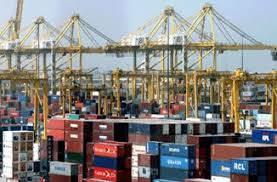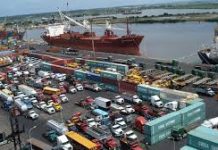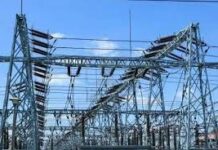
FG Loses $1bn Annually In Maritime Sector
A former Director General (DG) of the Nigerian Maritime Administration and Safety Agency (NIMASA), Temisan Omatseye, has said the Federal Government loses up to $1 billion annually in the maritime sector due to policy summersaults and expatriate players’ dominance.
Omatseye, a former President of the African Ship-Owners Association (ASA), said Nigeria, with its large coastline, should be able to have a very strong maritime industry that would see local players benefiting from the sector, noting that was not the case as most of the big players in the sector were firms owned by expatriates.
He said Nigeria being a major importing nation which also did a little bit of exporting of raw materials should be active in the logistics supply chain.
He further said: “The business in Nigeria is quite good, but the unfortunate aspect of it is that Nigerians have not been able to be part and parcel of the maritime sector, most especially because of the capital intensiveness of the sector.
Read Also:
“If Nigerians have not been part of the industry, then, what has been happening given that some Nigerians work with International Oil Companies (IOCs) and Cabotage Trade came into being over 15 years now.”
Omatseye revealed that though the Cabotage Act was quite strong, but that the Federal Government had not been able to integrate a long-term plan in the maritime sector. He explained that, “The act is quite strong.
It was basically mirrored on the Jones Act of the United States, but unfortunately; you cannot shut down the industry if you do not have capacity. The issue of waivers, which was supposed to go for one year, has continued for the last 15years because you do not have the capacity to support.
“There has to be a deliberate policy in this Cabotage Act. We know that we would be producing oil in the next 15 to 20 years. Companies like ExxonMobil or Chevron would have a strategic plan for the next 15 to 20 years; which means they know exactly what kind of assets they will require.
What should have happened is that, based on that assets requirement, there should have been a shipping plan in place for acquisition and writing off those assets over 15 years.
What that does is that it basically reduces your interest rate; it reduces your repayment and also allows you to develop capacity within that 15 years.













































